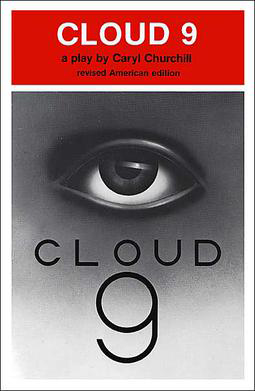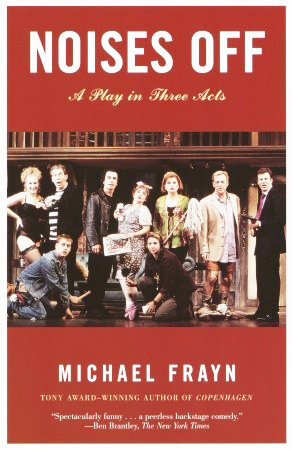Theater: Trust the Author!
Wendy Caster
arttimesjournal July 26, 2017
I walked out on a production of the brilliant comedy Cloud Nine the other night. The problem? The performers were trying too hard to be funny.
I recognize that my last sentence may seem counterintuitive. After all, isn’t the actor’s job in a comedy to be funny? Not always. Not even most of the time.
The actor’s job is—always—to understand what the character wants, what’s getting in the way, and how the character deals with it, and then to take the character’s goals and desires absolutely seriously.
 |
In Cloud Nine, it’s the late 19th century, and young Edward wants to play with dolls, explorer Harry Bagley wants to sleep with men, Edward’s mother Betty wants to sleep with Harry Bagley, Edward’s nanny Ellen wants to sleep with Betty, and Edward’s father Clive wants everyone to stay in their place and behave themselves, even while he carries on an affair with their visitor Mrs. Saunders. Yes, it’s farcical, but these people’s desires are heartfelt and deep. Edward loves the doll and is bereft when it is taken from him; Harry Bagley adores men but feels that he is diseased for doing so; Betty is terribly lonely; and so on. For the characters, these are serious stakes.
It’s easy to lose track of the stakes since Betty is played by a man, Edward is played by a woman, and so on. This deepens the farce, but it works best if the man playing Betty simply plays Betty and the woman playing Edward simply plays Edward.
In the production I left, Edward skipped everywhere, despite the fact he was deeply depressed. Clive yelled everything he said. Betty never missed an opportunity to signal that she wasn’t a she. And the play got the fewest laughs I have ever seen it get. In fact, I doubt it managed to achieve 10% of the possible laughs. It was painful.
Getting laughs is the author’s job. Honoring the character’s needs and desires is the actor’s. The directors of Cloud Nine didn’t respect Caryl Churchill, who is a truly brilliant and subtle playwright (yes, farce can be subtle, if you let it be). They claimed to be taking a Brechtian approach, which is fine, but while the production may be Brechtian, the characters’ lives are still real to the characters.
 |
In fact, the characters’ goals matter even in the silliest farce.
Take Noises Off, one of the silliest and funniest plays ever written. It consists of three acts. The first is the technical rehearsal of a play; the second takes place backstage during a performance; and the third is from the audience p.o.v. late in the 10-week run. Many of the jokes center on a missing plate of sardines, and they are funny. If the characters didn’t care about the sardines—or if the actors signaled “Look, aren’t we silly”—the jokes would die. For Noises Off to work, the characters must be perfectly serious about their needs. Again, the secret is to trust the author, in this case the wonderful, insanely prolific Michael Frayn. He knows what he’s doing.
Does this mean that directors need to always follow scripts 100%, without adding their own ideas, twists, and concepts? Not necessarily. But in my 48 years of playgoing, I’ve seen many shows in which directorial originality hurt rather than helped the play. And the most damaged were nearly always comedies.
Editor's note: Jacquie Wolf, our other theater writer reviewed Noises last month when it was at Shadowland Stage in Ellenville, NY
(Wendy Caster is an award-winning writer living in New York City. Her reviews appear regularly on the blog Show Showdown. Her short plays You Look Just Like Him and The Morning After were performed as part of Estrogenius festivals. Her published works include short stories, essays, and one book. )
